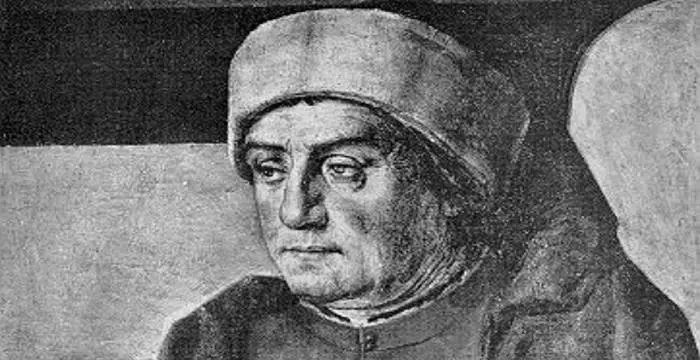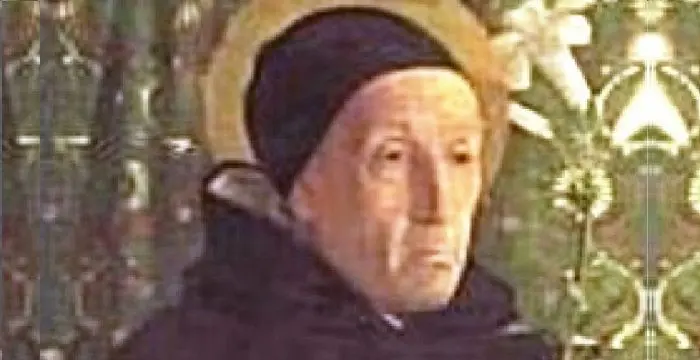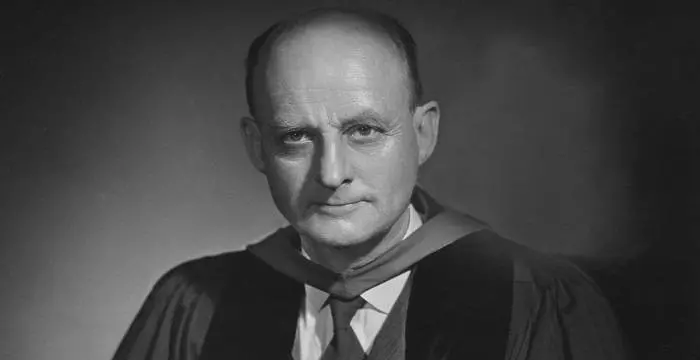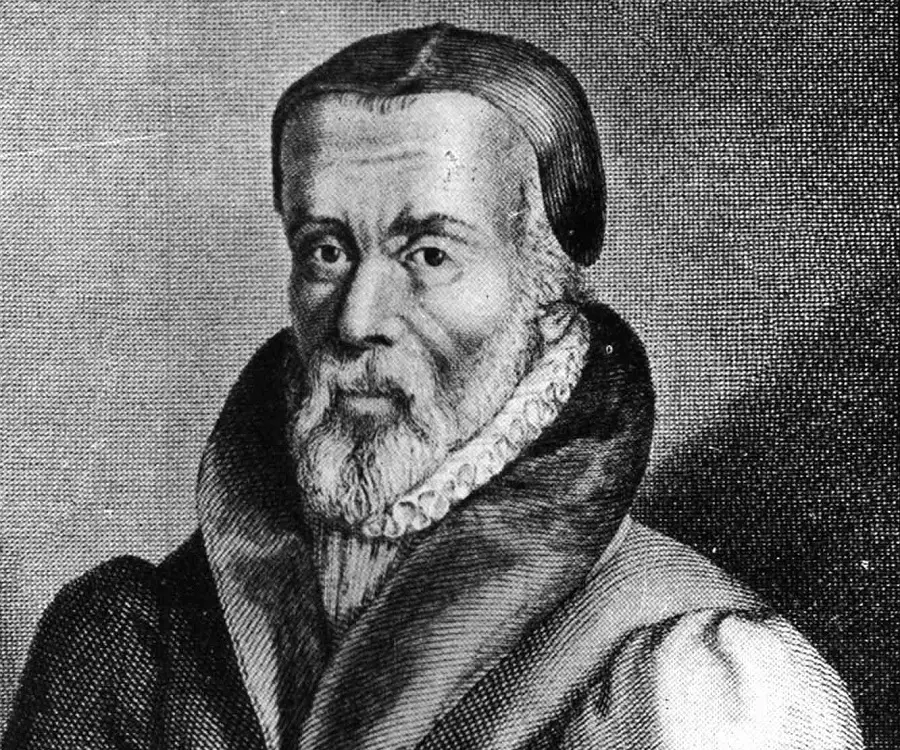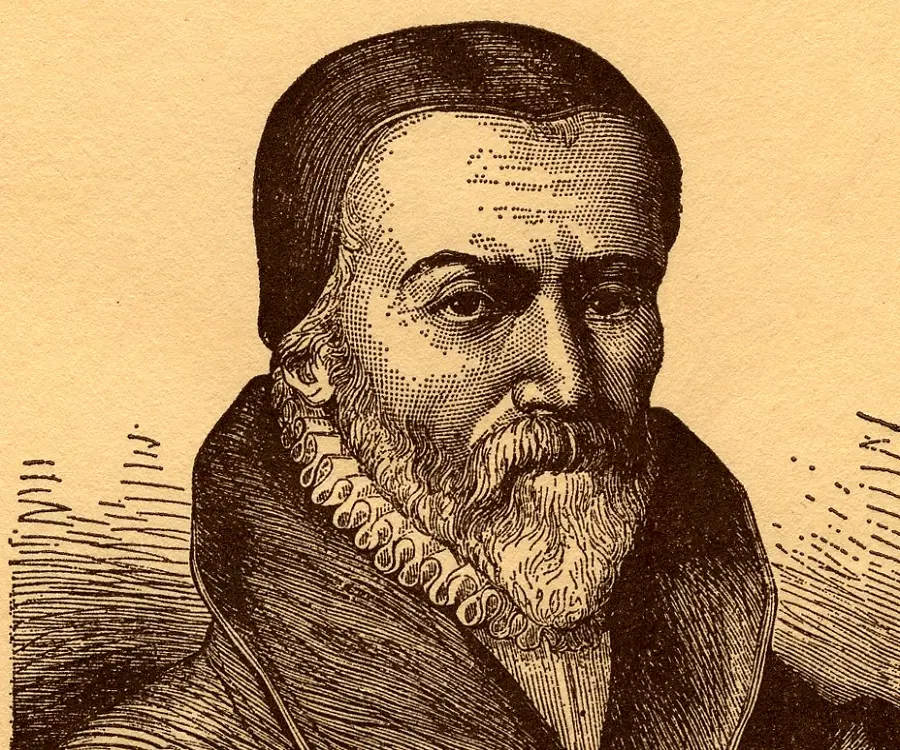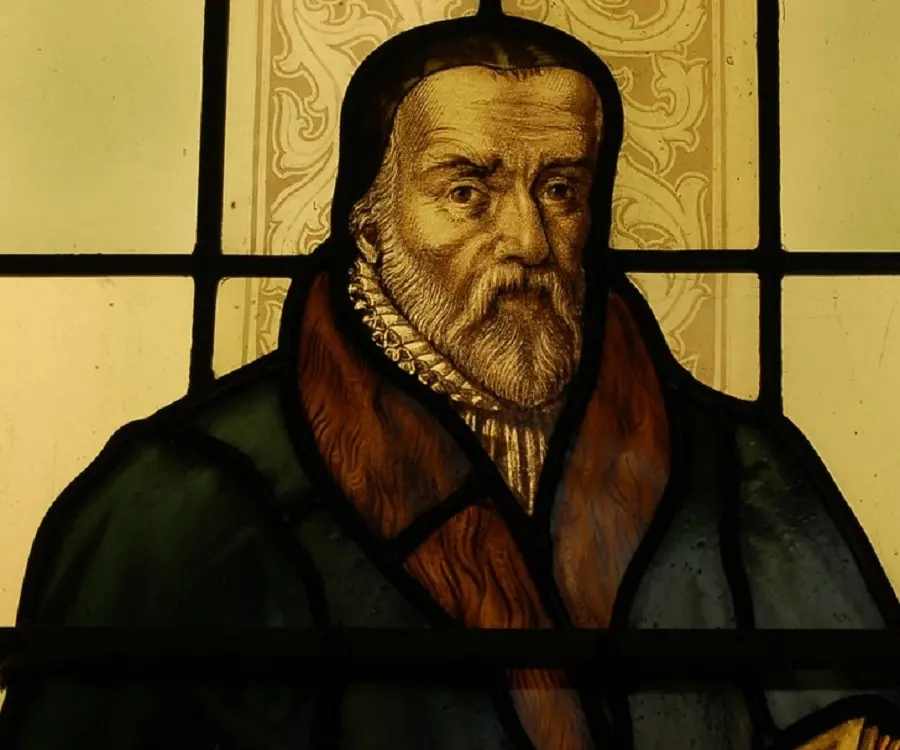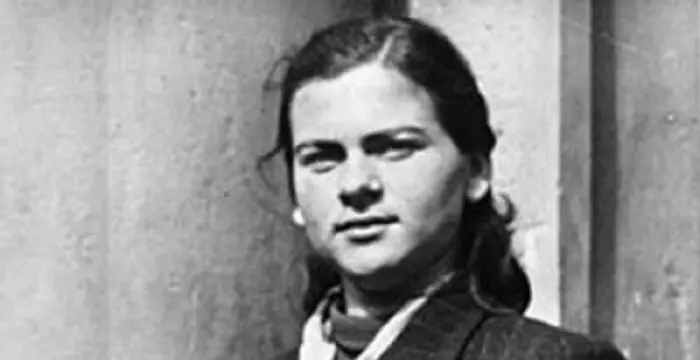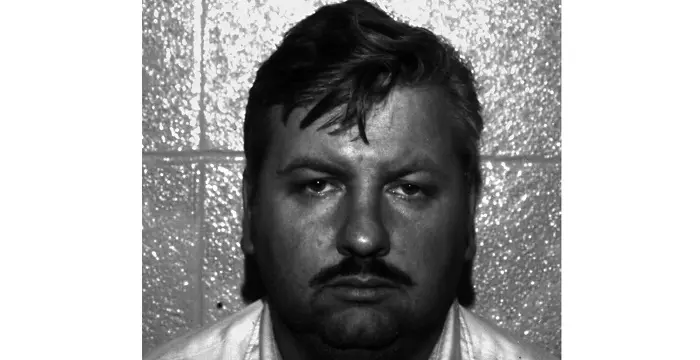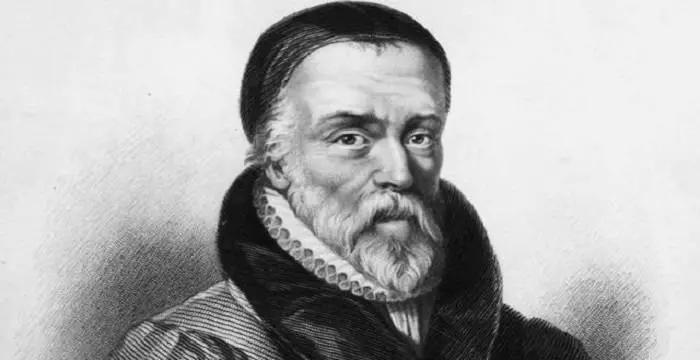
William Tyndale - Intellectuals & Academics, Career and Childhood
William Tyndale's Personal Details
William Tyndale was an English scholar and theologian who is most celebrated for his work of translating the Bible in English
| Information | Detail |
|---|---|
| Birthday | 1494 |
| Died on | October 6, 1536 |
| Nationality | British |
| Famous | Intellectuals & Academics, Theologians |
| Known as | William Tindall, William Tynsdale, William Tindill, William Tyndall |
| Universities |
|
| Cause of death |
|
| Birth Place | North Nibley |
| Gender | Male |
| Born in | North Nibley |
| Famous as | Theologian |
| Died at Age | 42 |
// Famous Theologians
Anicius Manlius Severinus Boethius
Boethius was an early 6th century Roman senator and philosopher best known for his treatise ‘Consolation of Philosophy’. This biography of Boethius provides detailed information about his childhood, life, achievements, works & timeline.
Meister Eckhart
Explore this biography to know the profile, childhood, life and timeline of Meister Eckhart, who brought in a great change in Germany with his groundbreaking thesis and ideas.
Reinhold Niebuhr
Reinhold Niebuhr was a German-American theologian, intellectual and political commentator who wrote the famous book, ‘Moral Man and Immoral Society’. This biography provides information about his profile, childhood, life and timeline.
William Tyndale's photo
Who is William Tyndale?
William Tyndale was an English scholar and theologian who is most celebrated for his work of translating the Bible in English. A gifted linguist, his work was praised after his death and formed a vital part of later Bible translations. Born in England, Tyndale was educated at Oxford and Cambridge University where he became a strong supporter of church reform. He firmly believed that people should be able to read the Bible in their own language and was keen on translating it in English. He was ordained as a priest and became a chaplain but his controversial opinions began alarming the church authorities. Subsequently, Tyndale moved to London and later to Germany, with the intention of translating the New Testament into English, an act that was strictly banned. After his English New Testament was completed and printed, its copies were smuggled into England and denounced by the Roman Catholic authorities. Tyndale was accused of heresy and thereafter, he went into hiding for few years. Later, he moved to Belgium where he was arrested by the imperial authorities. He was convicted of heresy and sentenced to death by being strangled and burned at the stake. Within few years of his execution, King Henry VIII published the English ‘Great Bible’ based on Tyndale’s work. His phenomenal work formed the basis of all subsequent English translations of the Bible and profoundly affected the development of the English language
// Famous Intellectuals & Academics
Bertil Gotthard Ohlin
Bertil Gotthard Ohlin was a famous Swedish economist. This biography profiles his childhood, family life & achievements.
Emily Greene Balch
Emily Greene Balch was an American economist, sociologist and pacifist who won the 1946 Nobel Peace Prize. This biography of Emily Greene Balch provides detailed information about her childhood, life, achievements, works & timeline.
Martin Buber
One of the greatest philosophers to have ever walked on earth, Martin Buber contributions to philosophy is a long-standing one. Explore all about his profile, childhood, life and timeline here.
Childhood & Early Life
William Tyndale was born around 1494 in Melksham Court, Stinchcombe, a village near Dursley, Gloucestershire, England. His family also went by the name Hychyns and may have migrated to Gloucestershire during the ‘War of the Roses’.
In 1506, William was enrolled at Magdalen College School at the Oxford University and completed his B.A. in 1512.
After obtaining his Master of Arts degree in 1515, Tyndale studied theology and subsequently became fluent in several languages including French, German, Italian, Latin, and Spanish.
While studying theology, he often criticized the idea that one had to study so long before actually being allowed to study the Bible. During his college years, he also sought to create Bible study groups with friends having similar interest.
Later Years
Between 1517 and 1521, he went to the University of Cambridge and served as professor of Greek. While at Cambridge, he became further convinced that the Bible alone should determine the practices and doctrines of the church, and that every follower should be able to read the Bible in his own language.
Tyndale was quite keen to translate the New Testament into English as he believed this would help common public understand scripture directly without the filter of the church. He also claimed that the Bible did not support the church’s view that they were the body of Christ on earth.
In 1521, he left Cambridge and became the chaplain at the home of Sir John Walsh, at Little Sodbury. Shortly after, he was criticized by fellow churchmen for his radical viewpoints and therefore in 1523, he left for London in the hope of translating the Bible into English.
In London, he was unable to obtain approval to translate the Bible into English and the church authorities in England prevented him from doing so. For the next couple of months, Tyndale preached in London while receiving financial support from a wealthy London cloth merchant, Humphrey Monmouth.
After struggling to receive any support or assistance to fulfill his objective, he left England and went to Germany in 1524. In Germany, after short stopovers in Hamburg and Wittenberg, he finally settled down at Cologne.
In July 1525, Tyndale completed the New Testament translation which was subsequently published at Cologne and later at Worms, after suppression of Catholic authorities. The following year, its first copies reached England where they were soon condemned as heretical and burnt in public at St. Paul's Cross.
In 1530, he wrote the Practice of Prelates, a treatise which criticized the annulment of Henry VIII's marriage. When the English King found out about it, he became furious and ordered Tyndale’s arrest.
Thereafter, Tyndale went in hiding for several years and was later arrested from Antwerp, Belgium. Subsequently, he was convicted of heresy and sentenced to death.
Within several years of his death, upon the directives of King Henry VIII, a number of English translations of the Bible were published which were heavily based on Tyndale’s original translations.
Major Works
William Tyndale is most remembered for his greatest work of translating the Bible into English language so as to enable the common public to read the Holy Scriptures. While performing the translation, he also introduced new phrases and words into the English translations which proved to be quite popular. His work later formed the major part of important Bible translations, most notably the Authorized Version, or King James Bible.
Personal Life & Legacy
After several years of hiding, Tyndale was betrayed by his friend, Henry Philips, and handed over to the imperial authorities in Belgium in 1535. Subsequently, he was convicted on a charge of heresy and his body was burnt at the stake on October 6, 1536, near Brussels, Brabant.
With his translation of the Bible the first to be printed in English, Tyndale’s remarkable work became the basis for most of the subsequent English translations.
// Famous Execution peoples
Irma Grese
Irma Grese was a notorious German Nazi concentration camp guard during the Second World War. This biography profiles her childhood, life, horrifying acts, death and other facts.
Aileen Wuornos
Aileen Wuornos was a serial killer who was sentenced to death for killing seven men in Florida. This biography of Aileen Wuornos provides detailed information about her childhood, life, crimes & timeline.
John Wayne Gacy
John Wayne Gacy was an American serial killer and rapist who targeted boys and young men. This biography of John Wayne Gacy provides detailed information about his childhood, life, achievements, works & timeline.
William Tyndale biography timelines
- // 1494William Tyndale was born around 1494 in Melksham Court, Stinchcombe, a village near Dursley, Gloucestershire, England. His family also went by the name Hychyns and may have migrated to Gloucestershire during the ‘War of the Roses’.
- // 1506 To 1512In 1506, William was enrolled at Magdalen College School at the Oxford University and completed his B.A. in 1512.
- // 1515After obtaining his Master of Arts degree in 1515, Tyndale studied theology and subsequently became fluent in several languages including French, German, Italian, Latin, and Spanish.
- // 1517 To 1521Between 1517 and 1521, he went to the University of Cambridge and served as professor of Greek. While at Cambridge, he became further convinced that the Bible alone should determine the practices and doctrines of the church, and that every follower should be able to read the Bible in his own language.
- // 1521 To 1523In 1521, he left Cambridge and became the chaplain at the home of Sir John Walsh, at Little Sodbury. Shortly after, he was criticized by fellow churchmen for his radical viewpoints and therefore in 1523, he left for London in the hope of translating the Bible into English.
- // 1524After struggling to receive any support or assistance to fulfill his objective, he left England and went to Germany in 1524. In Germany, after short stopovers in Hamburg and Wittenberg, he finally settled down at Cologne.
- // Jul 1525In July 1525, Tyndale completed the New Testament translation which was subsequently published at Cologne and later at Worms, after suppression of Catholic authorities. The following year, its first copies reached England where they were soon condemned as heretical and burnt in public at St. Paul's Cross.
- // 1530In 1530, he wrote the Practice of Prelates, a treatise which criticized the annulment of Henry VIII's marriage. When the English King found out about it, he became furious and ordered Tyndale’s arrest.
- // 1535 To 6th Oct 1536After several years of hiding, Tyndale was betrayed by his friend, Henry Philips, and handed over to the imperial authorities in Belgium in 1535. Subsequently, he was convicted on a charge of heresy and his body was burnt at the stake on October 6, 1536, near Brussels, Brabant.
// Famous British peoples
Wentworth Miller
Wentworth Miller is an American actor and screenwriter who achieved recognition for his role in the TV series ‘Prison Break’.
Sophie Reade
Sophie Victoria Reade is a British model and reality show star. Let’s take a look at her family and personal life, including her age, birthday, boyfriends, and some interesting facts.
Josh Temple
Check out all that you wanted to know about Josh Temple (Slogoman), the famous British YouTube Personality; his birthday, his family and personal life, his girlfriends, fun trivia facts and more.
Yammy Xox
Check out all that you wanted to know about Yammy Xox, the famous British YouTube Personality; her birthday, her family and personal life, her boyfriends, fun trivia facts and more.
Grian
Grian is an English YouTube gamer and social media influencer. Check out this biography to know about his birthday, childhood, family life, achievements and fun facts about him.
Benjamin Atkinson
Benjamin Atkinson is the son of the world-renowned British actor and comedian, Rowan Atkinson. Check out this biography to know about his childhood, family, personal life, including his age, birthday, etc.
William Tyndale's FAQ
When was William Tyndale died?
William Tyndale was died at 1536-10-06
Where was William Tyndale died?
William Tyndale was died in Vilvoorde
Which age was William Tyndale died?
William Tyndale was died at age 42
Where is William Tyndale's birth place?
William Tyndale was born in North Nibley
What is William Tyndale nationalities?
William Tyndale's nationalities is British
What was William Tyndale universities?
William Tyndale studied at University of Cambridge, University of Oxford, Magdalen College, Oxford, Hertford College, Oxford
What is William Tyndale's cause of dead?
William Tyndale dead because of Execution
How famous is William Tyndale?
William Tyndale is famouse as Theologian
